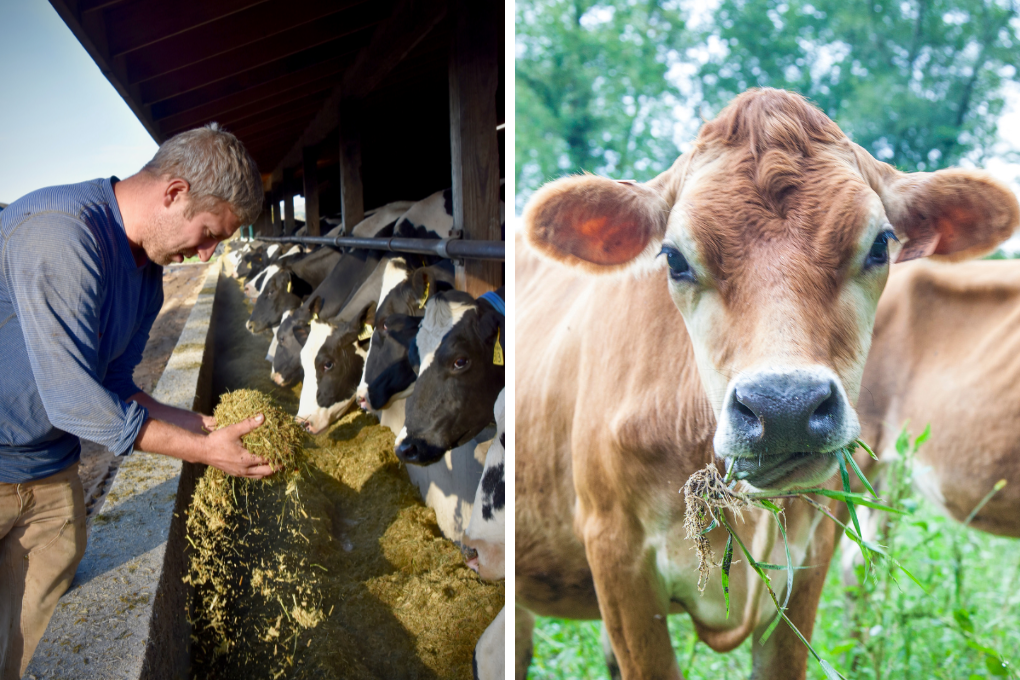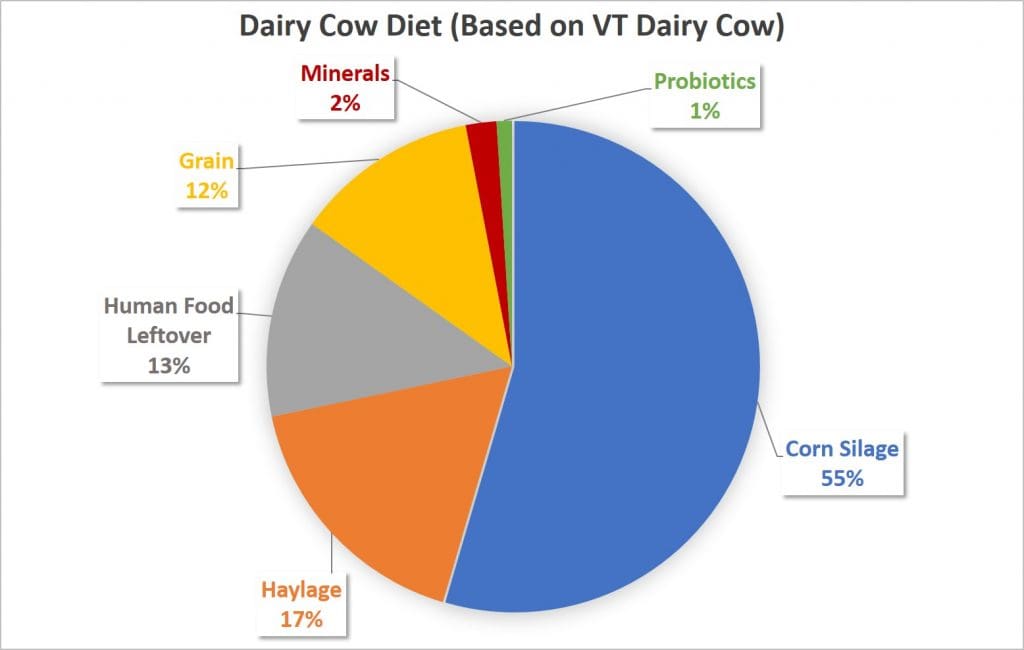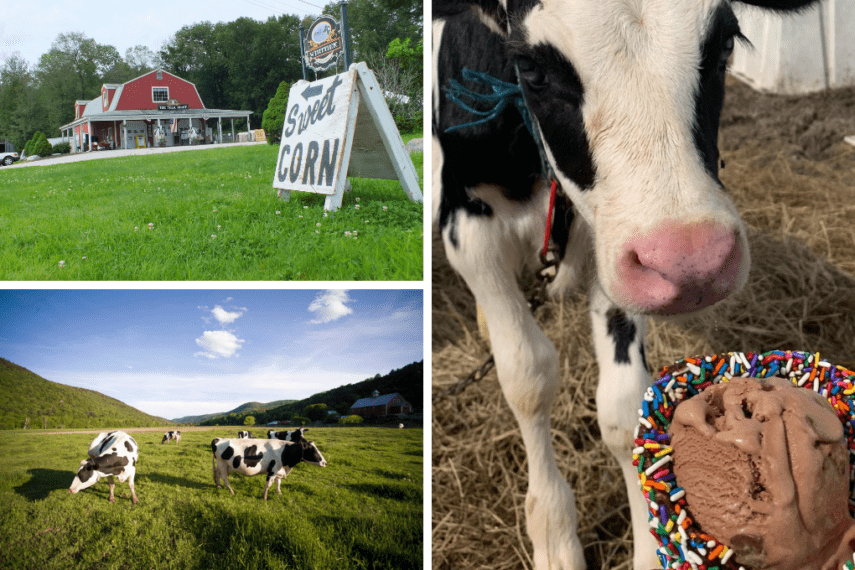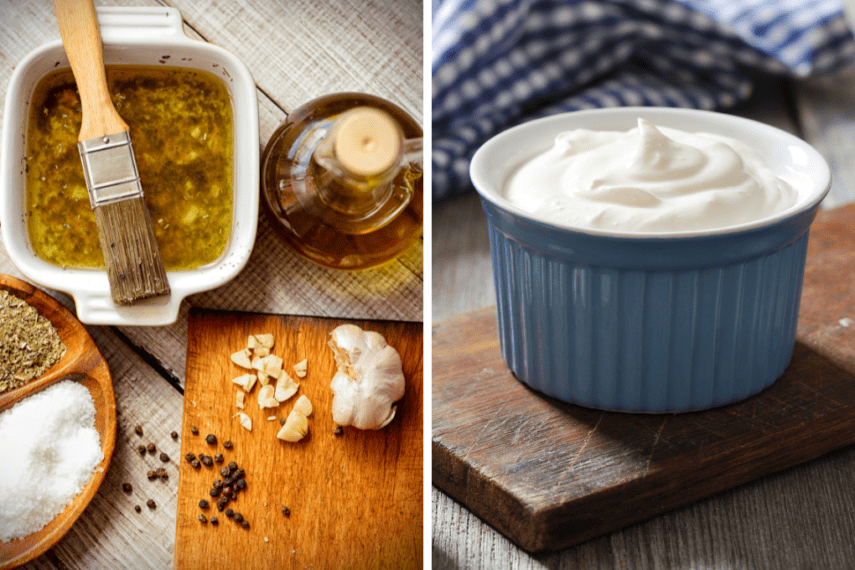
Making healthy food choices can be challenging with seemingly endless, conflicting, or changing nutrition information. Cows have it easier. They have their own nutritionists who help feed them what they need. Just as with people, it is essential that cows eat a balanced diet to stay happy and healthy. We spoke with Melissa Carabeau, a dairy nutritionist with Poulin Grain, to learn what this means for dairy cows and the nutritious foods they produce.
Dairy Cow Nutritionists
Dairy farmers work on a weekly or biweekly basis with a professional who advises them on how to optimize the nutrition of their animals. An average dairy farm may have between eight and fifteen different diets to ensure that each cow is properly fed. Within those diets, dairy nutritionists are also balancing nutrients, probiotics, and prebiotics to boost the immune system of the animal. Carabeau reiterates that in her line of work, “the health of the cow is what comes first.”
What Cows Eat
A healthy diet for a dairy cow includes:
- Carbohydrates (the source of a cow’s energy)
- Amino acids (the building blocks of protein)
- Fatty acids (the building blocks of fat)
- Vitamins & Minerals
These components come from farm-grown forages and custom grain or mineral supplements. Most farm-grown forages include grass, haylage or hay, and corn sileage, which is the entire corn stalk chopped up so that cows get fiber from the plant.

Cow Diets and Sustainability
Oftentimes, when farm grown forages are stored after harvesting, they ferment and lose the natural carbohydrates that cows need. To combat this, many farmers supplement the diet with other sources of sugar, starch, or fiber, such as cranberry pulp, spent brewer’s grain, and even candy meal.
“We do feed a lot of leftovers from human production to animals, which is a part of the recycling of things through the whole food system. Without cows or other animals taking some of these things, they’d end up in the landfill, but we can turn them into high quality human food,” Carabeau notes.
As a result, cow diets have an incredibly positive impact on the waste stream.
Additionally, the environmental impact of a cow’s diet is an ongoing area of study. Researchers are trying to determine which feeds can most effectively reduce methane emissions on dairy farms. “It’s definitely something everybody’s focusing on,” Carabeau says.
How Much Cows Eat
Mature cows weighing 1,500-1,800 pounds produce 100 to 125 pounds of milk, or 14 gallons of milk, per day. To produce that much milk, they must consume a lot of food. On average, mature dairy cows eat 150 pounds of food per day.
Some people may wonder if giving dairy cows such vast quantities of food every day takes away food that could go to humans. In response to this notion, dairy farmer Mark Duffy says, “I have yet to meet someone who wants to eat distiller’s grain and corn silage.” Amazingly, cows can consume many byproducts inedible to humans, which aids in sustainability efforts.
Are Cows Given Hormones?
Upon learning about high yield on dairy farms (on average, farms are going to produce between 10 and 12 gallons of milk per cow per day), some people may wonder if cows are given growth hormones. It is important to understand there are no added hormones in milk.
A few decades ago, some farmers started to supplement their cows with rbST, an FDA-approved synthetic hormone, to help with milk production. Science shows that it is safe for cows and has no effect on humans or the hormone levels in the milk itself, but in response to consumer requests, dairy farmers in New England no longer use rbST. The use of it in other parts of the country is also now very limited.
While there are no added hormones in milk, there are natural hormones present – just like in any other food of plant or animal origin. Carabeau notes, “there are hormones in everything we eat unless it was synthetically produced. When you’re eating something that came from a living thing, whether it’s lettuce or milk or meat, there [are] hormones in it. But there are no added hormones in milk.”
Are Cows Given Antibiotics?
A common misconception is that some cows are regularly given antibiotics. To clarify, milk at the store will never have antibiotics in it whether “no antibiotics” is listed on the label or not.
A cow is only given antibiotics if she is sick, just like you may take medicine to treat an illness. Antibiotics are prescribed judiciously. The milk from the cow receiving treatment will be separated from the rest of the herd’s milk and safely discarded. It does not enter the food supply.
On a conventional farm, after the cow is done with her dose of antibiotics, there is a withdrawal period where the milk is still discarded. The drug company and FDA determine this based on regulatory research. After this period, the cow’s milk can then go back into the food supply. On an organic farm, the cow permanently leaves the milking herd.
All milk (regular and organic) is tested multiple times, starting on the farm at the bulk tank when the cooperative picks up the milk, in the trailer load of milk, and again at the plant. There are several checkpoints along the way to ensure the products are safe and healthy for consumers.
Healthy Cows, People, and Planet
You can rest assured that farmers feed their dairy cows a balanced, nutritious diet with guidance from professional animal nutritionists. These nutritionists take great effort in caring for the cow, the consumer, and the planet. So, you can feel good having dairy as part of your balanced diet knowing that the cows who made that nutritious food have a unique and healthy diet of their own.



